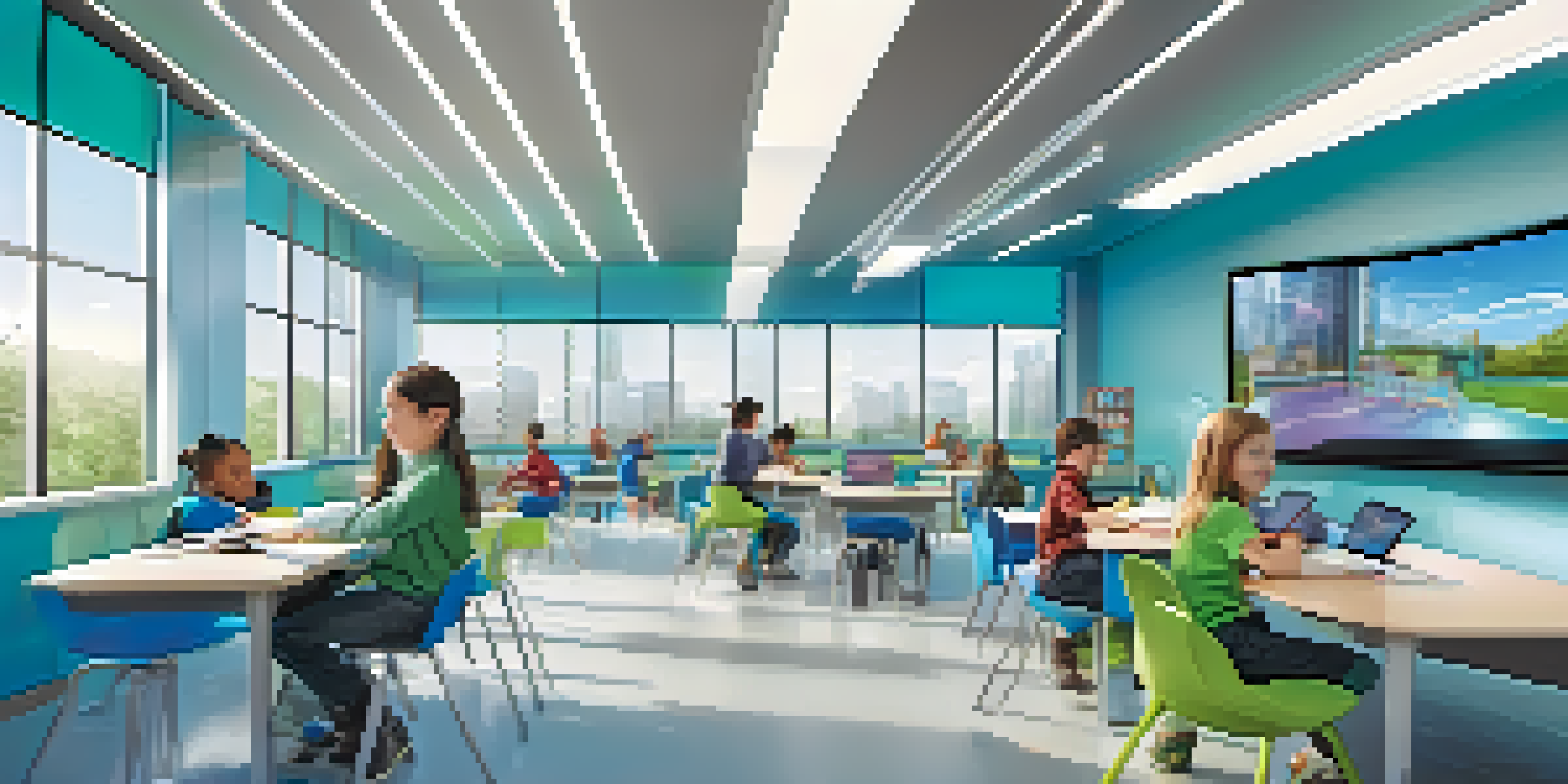The Future of Urban Education in Smart Cities

Understanding Smart Cities and Their Impact on Education
Smart cities utilize technology and data to enhance urban living, creating environments that are efficient, sustainable, and interconnected. Education in these cities is evolving to leverage this technological infrastructure, offering new opportunities for learning. By integrating tools like AI, big data, and IoT, urban education can become more personalized and accessible to all students.
Personalized Learning Experiences Through Technology
Imagine a classroom where lessons adapt to each student's learning pace and style. In smart cities, personalized learning is becoming a reality through the use of data analytics and adaptive learning platforms. This tailored approach not only improves student engagement but also boosts academic performance, ensuring that no one is left behind.
Tech Transforms Urban Education
Smart cities leverage technology to create personalized and accessible learning experiences for all students.
The Role of Collaboration in Smart Urban Education
Collaboration between schools, local governments, and technology companies is crucial for the success of urban education in smart cities. By working together, these entities can develop programs that address the unique challenges of urban learners. This partnership fosters innovation and creates a supportive ecosystem where students can thrive.
Enhancing Accessibility with Smart Infrastructure
Smart cities prioritize accessibility, making education more reachable for all students, regardless of their background. Features like smart transportation systems and community Wi-Fi help bridge the digital divide. This ensures that students in urban areas have the resources and opportunities they need to succeed academically.
Collaboration is Key for Success
Partnerships among schools, governments, and tech companies foster innovation and support urban learners.
The Importance of Lifelong Learning in Urban Settings
In fast-paced urban environments, the concept of lifelong learning is essential. Smart cities are adopting models that encourage continuous education, from early childhood through adulthood. This not only prepares individuals for the workforce but also fosters a culture of innovation and adaptability within the community.
Preparing Educators for the Future of Teaching
As technology transforms education, it's vital to equip teachers with the skills and tools they need to thrive. Professional development programs focused on integrating technology into the classroom are becoming increasingly important. By investing in educators, smart cities can ensure that teaching methods evolve alongside technological advancements.
Lifelong Learning in Urban Areas
Smart cities promote continuous education, preparing individuals for the workforce and nurturing community adaptability.
Challenges Facing Urban Education in Smart Cities
Despite the many advantages, urban education in smart cities faces challenges, such as funding disparities and resource allocation. Ensuring equitable access to technology and quality education remains a critical concern. Addressing these challenges requires collaboration and innovative solutions from all stakeholders involved.
Looking Ahead: The Future of Education in Smart Cities
The future of urban education in smart cities holds immense potential for innovation and growth. As technology continues to advance, the possibilities for enhancing learning experiences are virtually limitless. By embracing these changes, we can create educational environments that not only meet the needs of today's students but also prepare them for the challenges of tomorrow.